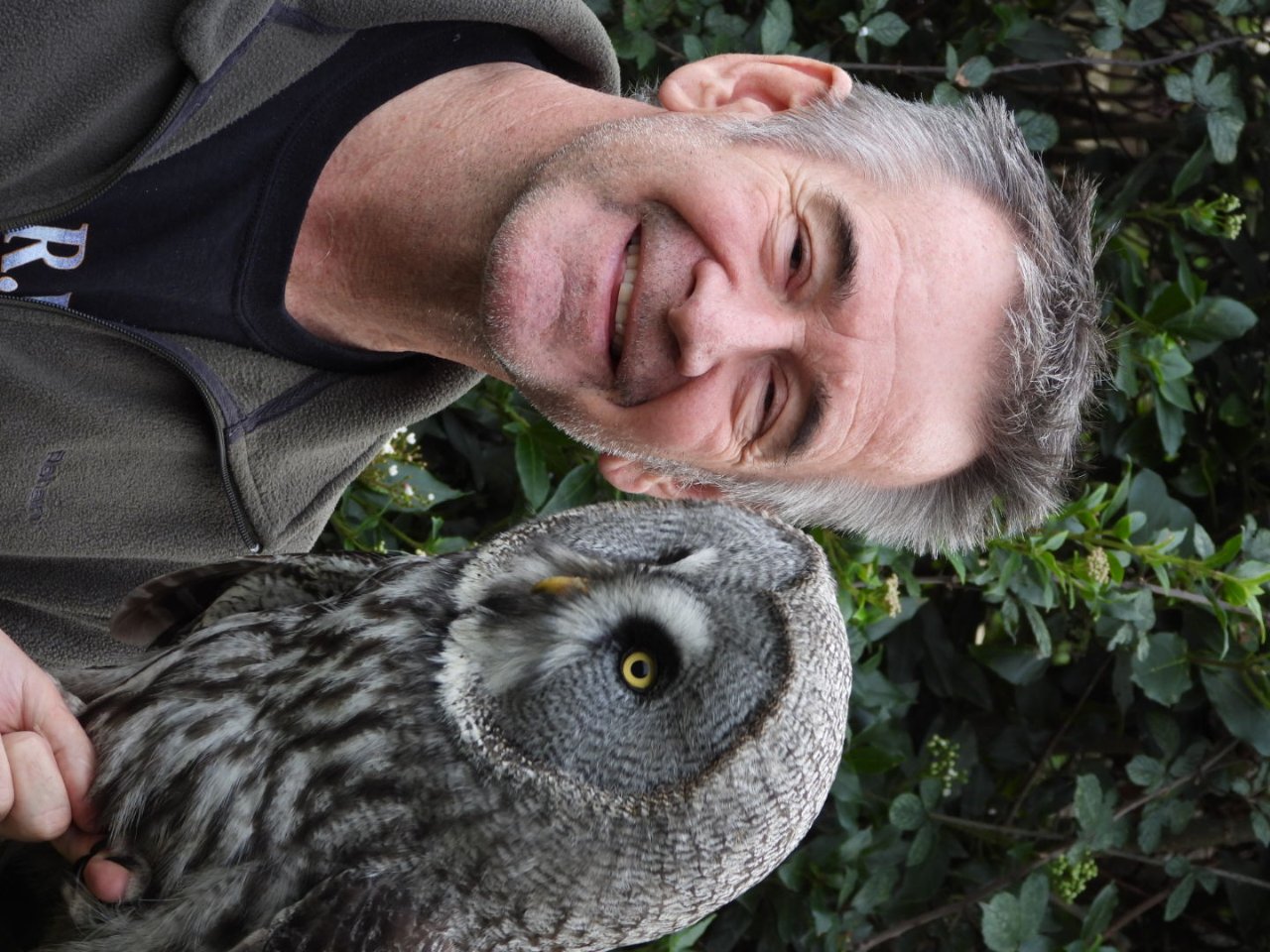Nigel Marven interview - Under the spell of nature
Every person looks up to someone and follows him/her in spirituality. I did the same. I can thank him for my enthusiasm and vocation for nature. Welcome Nigel Marven, in whose documentaries creatures are the main characters.

Lili Lajtár (LL): When and for what reason did you decide to dedicate your life to nature?
Nigel Marven (NM): Ever since I was a little boy I’ve had a strong affinity with creatures and the natural world. I was never interested in toy cars or train sets. It was always stick insects, pond dipping and reptiles.
LL: How many observations were you enriched by observing nature that you consider important to highlight?
NM: Every observation of nature enriches my life, whether it’s an orange tip butterfly in my garden or Komodo dragons competing for a carcass on Rinca island in Indonesia. Everyone should keep their eyes peeled and ears skinned. Watch and listen!
LL: According to your experiences, how open do you see young people’s interest in nature, how open are they to the topic?
NM: Young people are very interested in nature and are realising that unless adults/ politicians do something soon about climate change and loss of biodiversity we’ll all be in big trouble.
LL: How important do you consider teaching young people to protect nature?
NM: Inspiring young people is the most important and rewarding part of my job.
LL: What goals do you want to achieve with your series and documentaries?
NM: I hope to inspire people to be interested in the natural world, showcase a countries habitats, so Colombians, Filipinos, Guatemalans, etc know what treasures they have within their borders, encourage responsible eco tourism so people know their local habitats and wildlife have a value ie a living Jaguar or shark is more valuable than a dead one. In my snake films I hope those reptiles will be admired and respected not feared and loathed.
LL: How much do your children represent your spirituality?
NM: My children are interested in protecting the environments of the world.
LL: When do you think it will be clear if someone is talented in biology?
NM: Talent in biology can come to the fore at any age.
LL: Did you have the opportunity to study Central European plant and animal species?
NM: I’ve been to Hungary, enjoyed woodpeckers and huge crane flocks on Hortobagy, Czech Republic to film black storks and wallcreepers, Slovakia looking for reptiles and Rumania to see the endangered red breasted goose.
LL: How rich in species do you consider your native country to be?
NM: The U.K. has done a bad job in protecting its biodiversity and is very low down on league tables of remaining populations of native plants and animals. I hope that will change soon and farming will be less industrialised, areas will be set aside for nature to recover.
LL: What places would you like to travel to in the future?
NM: Madagascar and Ethiopia.
LL: Do you like to give interviews?
NM: Interviews are fine as long as I’m not too busy filming and the interviewer understands my time is limited.
LL: What do you think of David Attenborough?
NM: David Attenborough is a great ambassador for the natural world and a superlative broadcaster.
LL: How can people help species on the brink of extinction?
NM: Tell as many people as they can about the plight of the endangered species. Give the species good PR. Join a conservation organisation that specialises in the animal group they’re passionate about protecting. Help with conservation efforts by volunteering their time, fundraising or by making donations.
LL: Do you consider it is important to have knowledge in paleontology in order to better understand the present?
NM: A knowledge about what happened in the past is important in seeing how we should cherish creatures and natural habitats. We don’t want pandas, hunting dogs, albatrosses and Guatemalan beaded lizards to go the way of dinosaurs Humankind is as dangerous to the Earth as the meteorite that wiped out the dinosaurs, we’re on the verge of causing another Great Extinction and need to do something about it immediately.
LL: I think that nature is worth examining in its context because everything is related to everything, they affect each other. What do you think about it?
NM: Everything is interconnected in the web of life, it’s cosmic arrogance to think destroying the natural world will not be disastrous for humankind.
LL: What changes do you think will occur in the nature in the future if humanity doesn’t change anything in its current attitude?
NM: For anyone interested in nature, life wouldn’t be worth living if we don’t do something right now. Biodiversity will be lost and in the end we will destroy our home, Planet Earth.
LL: Do you think that your love for nature will never disappear from you?
NM: I’ll be enthusiastic and passionate about nature until the day I die.
LL: What message do you have for young people?
NM: Young people should carry on making the grown ups aware of the environment and try to be careful with the worlds resources. Pay attention to the environmental consequences of what you eat and drink. How you travel around.
I thank Nigel Marven for answering my questions and giving me a glimpse into his adventurous life.